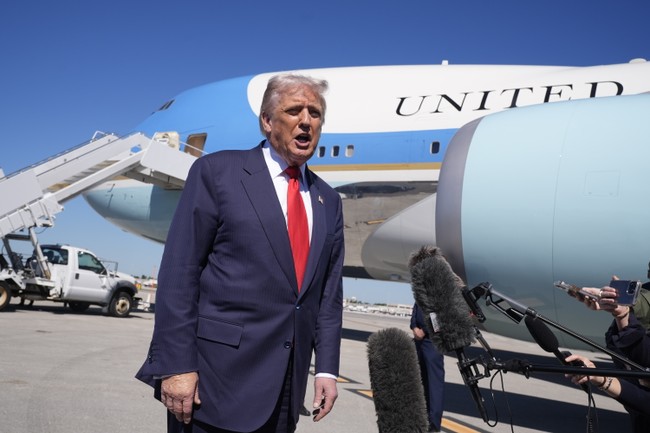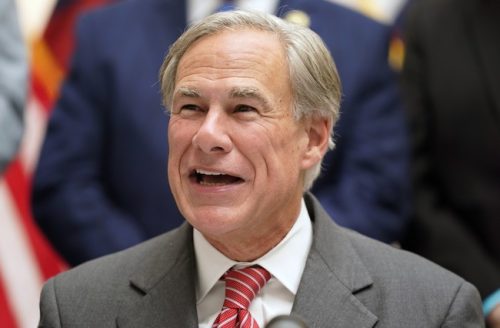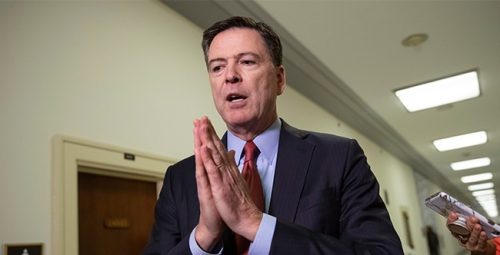I’ll lay out what happened in plain terms: a sprawling probe called Arctic Frost escalated into broad surveillance, a presidential government phone was surrendered to the special counsel, subpoenas swept up conservatives and GOP senators, and senior Biden-era officials signed off on the operation. This piece traces who knew, who was targeted, and why Republicans are calling this a dangerous example of government overreach.
While the country deals with a Democrat-induced government shutdown, the Arctic Frost investigation keeps producing alarming details. What began as an inquiry tied to the 2020 election reportedly expanded into a wide surveillance dragnet focused on conservative groups and Republican figures. The probe’s stretch has Republicans warning about a pattern of government weaponization against political opponents.
Sen. Chuck Grassley (R-IA) has been central in exposing how far the operation went, and his findings raise hard questions about scope and authority. Documents and disclosures suggest the probe targeted more than routine suspects, pulling in organizations and individuals across the conservative landscape. The effects were broad enough that critics say the operation crossed a line from investigation into political surveillance.
🚨During the Arctic Frost Investigation, we found that Special Counsel seized President Trump’s government-issued phone.
This means the Biden Administration turned over President Trump’s phone to Special Counsel—an UNPRECEDENTED action.
In addition, Special Counsel subpoenaed…
— Attorney General Pamela Bondi (@AGPamBondi) November 4, 2025
Attorney General Pam Bondi publicly revealed a striking detail: President Trump’s government-issued phone was handed over to Special Counsel Jack Smith by the Biden administration.
During the Arctic Frost Investigation, we found that Special Counsel seized President Trump’s government-issued phone.
This means the Biden Administration turned over President Trump’s phone to Special Counsel—an UNPRECEDENTED action.
In addition, Special Counsel subpoenaed all of President Trump’s PERSONAL phone records.
We can never again allow this kind of government weaponization in America.
I submitted these new documents to our partners on Capitol Hill. I commend our team at the FBI for working diligently to expose this.
Beyond the presidential phone, the investigation reportedly subpoenaed the personal phone records of President Trump, a move that Republicans call extraordinary and unconstitutional in practice. At least eight Republican senators had their phone records and metadata targeted, according to the disclosures, and subpoenas requested detailed telecommunications data. Critics say this level of intrusion on elected officials is unprecedented and chilling.
Former Attorney General Merrick Garland, Deputy Attorney General Lisa Monaco, and then-FBI Director Chris Wray are named among those who knew about and signed off on the investigation. Documents indicate they effectively ordered a high-priority operation, prompting questions about internal checks and political motives. The involvement of top DOJ and FBI officials only deepens concern that this was approved at the highest levels.
More than 400 conservative organizations were reportedly swept into the probe, including Turning Point USA and other grassroots groups that have been central to the modern conservative movement. The late Charlie Kirk’s organization was specifically named among those targeted, illustrating how mainstream conservative activity was swept up by subpoenas. Republicans argue this shows a pattern: institutions and movements critical of the administration were treated as subjects of intelligence-style scrutiny rather than ordinary civic actors.
Judge James Boasberg signed telecommunications subpoenas that enabled the collection of metadata and other records, a step that brought the investigation closer to what many view as wiretap-level surveillance. With subpoenas for phone metadata and records in hand, the operation had the technical means to track communications across networks and between high-profile figures. That possibility has prompted urgent calls from lawmakers to restore limits on investigatory reach.
From a Republican perspective, Arctic Frost reads like a cautionary tale about mission creep and the dangers of a politicized justice system. The seizure of a government phone tied to a former president, the sweep of hundreds of conservative groups, and the subpoenas of sitting senators’ records all combine into an unsettling picture. Lawmakers and advocates on the right now want accountability and legal reforms that prevent future agencies from using investigative power as a political weapon.






